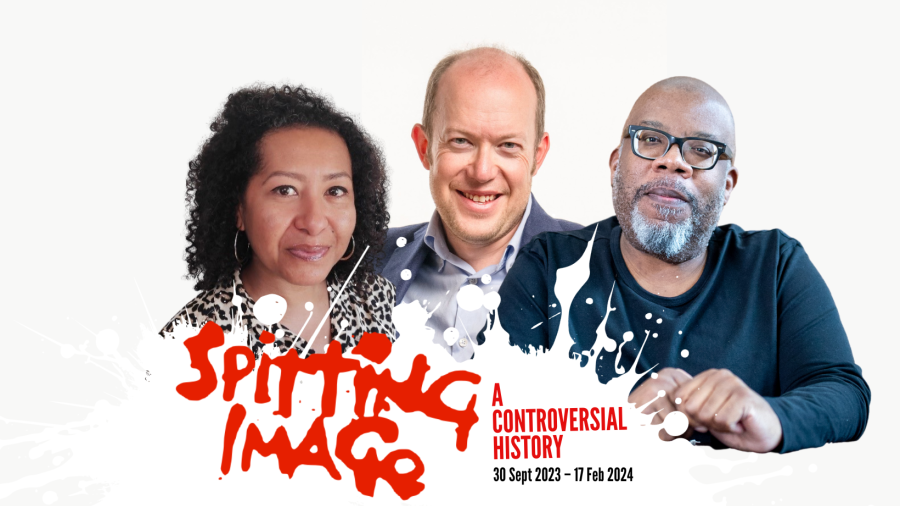How to rebuild a city with Karam Alkatlabe


Spitting Image: A Controversial History benefitted from the expertise and guidance of REACH Hub members Dr Kenny Monrose and Jenni Skinner in its representation of race in Britain.

First broadcast in 1984, Spitting Image changed the cultural landscape of the UK and beyond forever. Now, a grand and grotesque selection of puppets, sketches, letters of complaint and even Margaret Thatcher's handbag are on display at Cambridge University Library - home to the Spitting Image archive - in a full retrospective exhibition of the TV phenomenon.
When the exhibition was first conceived, the Head of Exhibitions and Public Programmes, Dr Chris Burgess, was keen to include a dimension that investigated both the portrayal of race and racism within the show, as well as its significance for Black Britons.
“I am particularly interested in understanding British satire as it moves beyond its traditional preserve of white men,” says Dr Burgess, “so including in the exhibition how Spitting Image and subsequent satire portrays and represents race is really important to me”.
Two members of the Wolfson Race, Ethnicity and Cultural Heritage (REACH) Research Hub played a crucial role in the formation of the exhibition.
Advisory board member Jenni Skinner (left), who is also the African Studies Library Manager, connected Dr Chris Burgess (centre) with Wolfson Fellow Dr Kenny Monrose (right) to discuss race and representation within the Spitting Image exhibition.
“Talking to Kenny was invaluable in the formation of the exhibition and we changed the content of some of the displays based on those conversations,” Chris said.
In particular, Dr Monrose advised on the inclusion of the first Black news anchor, Trevor MacDonald, and even produced a short video essay exploring how Spitting Image was received by black Britons during the 1980s.
Jenni Skinner’s facilitating role was key in connecting Chris and Kenny which ensured the outcomes of those conversations were adeptly incorporated into the displays.
“Captioning is really important in any exhibition”, says Jenni Skinner. “You can’t have pages and pages of explanation and keep people’s attention, so Chris and Kenny focussed on capturing the key points to help frame Britain’s race relations, and the caricatures of Black Britons included in the exhibition”.
“With very few non-white people on television in the 1980s, Spitting Image chose to incorporate a number of Black characters within their production," reads the University Library exhibition's caption on Race in Spitting Image.
"Whilst the show’s founder has subsequently declared some of these early caricatures could be considered less than complimentary, the show was one of the few television shows to challenge the racist narratives that ran rampant in British politics during the Thatcher years.
“Moreover, Spitting Image was highly critical of the apartheid regime in South Africa and provided a full panoramic view of general racism in Britain. However, controversy arose when the show was rebooted in 2020 over the characterisation of footballer Marcus Rashford which was accused of clumsy racist stereotypes and garnered a critical response from viewers.
As part of a wider series of events around Spitting Image: A Controversial History, the University Library is also hosting a talk titled ‘Think Like a White Man – Black Satire in the 21st Century’ by satirist, writer and broadcaster Nels Abbey.







